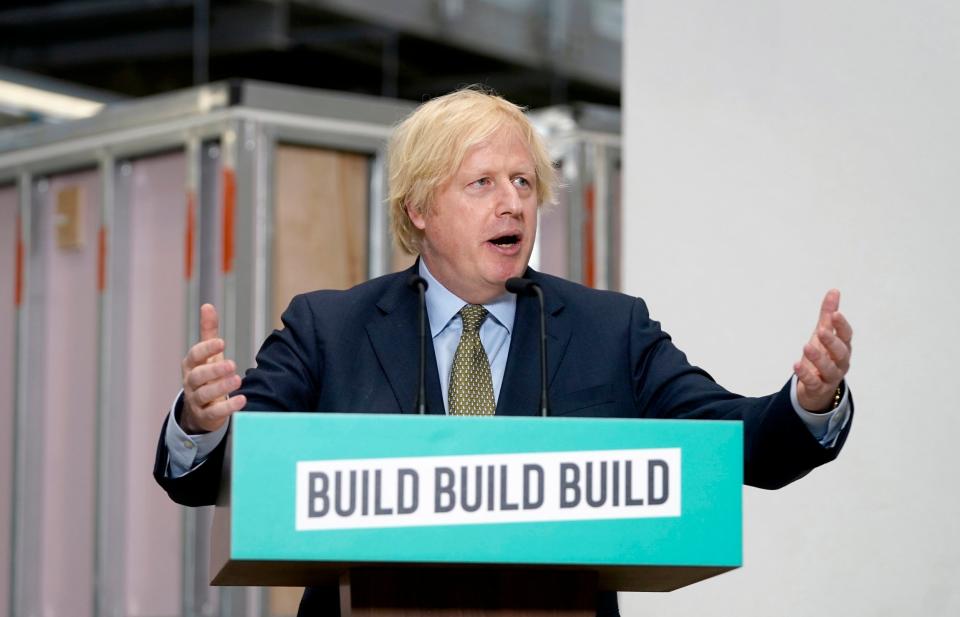Coronavirus: Majority of Tory voters want government to consider four-day working week

Nearly two-thirds of the public and more than half of Conservative voters believe the government should explore the introduction of a four-day working week in the wake of the coronavirus pandemic, a new poll shows.
The findings come after The Independent reported that MPs and campaigners had written to Rishi Sunak, the chancellor, urging him to consider the radical policy amid growing levels of unemployment as the economy gradually emerges from lockdown.
The concept has previously been floated by the Green Party and former Labour leader Jeremy Corbyn, whose manifesto at the 2019 general election pledged to reduce average full-time working to 32 hours per week, with no loss of pay, by the end of the decade.
Campaigners for a four-day working week now believe the health crisis and looming economic downturn from Covid-19 will provide opportunities “for a growing list of unemployed people which already stands at 2.8 million”, and are urging the Tories to seriously examine the policy.
According to the new research by pollsters Survation, 29 per cent of respondents said they “strongly support” the government exploring a four-day week, while 33 per cent said “somewhat support”.
Just six per cent said they were “strongly opposed” to the measure, and a further 7 per cent said they “somewhat oppose” while 20 per cent of those polled said they “neither support nor oppose” the introduction of the policy.
Among those who voted for Boris Johnson’s Conservatives at December’s general election, 56 per cent said they either strongly or somewhat support the government considering the policy to reduce the working week.
Those surveyed were asked to respond to the statement: “Some people have recently suggested that a four-day working week could help us recover from the impact of Covid-19 by sharing work more equally across the economy, with no reduction in pay for workers except the highest earners.
“Supporters say it could improve wellbeing, boost the economy and reduce sick days, while some businesses argue their wage bill may increase whilst paying current wages for shorter hours. To what extent would you support or oppose the government exploring the introduction of a four-day working week?”
Will Stronge, the director of research for Autonomy, who commissioned the research, said: “The research demonstrated that a shorter working week is beneficial to the environment, to our wellbeing and to staff performances. It’s a multi-dividend policy.”
“The coronavirus pandemic has highlighted the inadequacies of our labour market and has hit those on low incomes in stressful, key worker jobs hardest. A fairer, post-Covid economy that benefits workers is the right thing to do, and shorter working hours with no reduction in pay should be part of that,” he added.
In a letter seen by The Independent and sent to the chancellor last month, MPs and activists said shorter working time has been used “throughout history as a way of responding to economic crises”, as they urged the Treasury to explore the policy.
“They were used as a way of reducing unemployment during the Great Depression of the 1930s, which led to the normalisation of the eight-hour day and the 40-hour week,” they added.
“One of the biggest impacts would be better mental health and wellbeing across the board, with more time available for socialising, family and community.”
Joe Ryle, a campaigner with the 4 Day Week campaign and former Labour adviser, said: “The four-day week is an idea that is gaining momentum across the world right now because people are reimagining a better future for themselves post-Covid-19.
“A four-day working week is a no-brainer. Why wouldn’t we want to be happier, healthier and, at the same time, more productive at work?”
Survation polled 2,003 people, living in the UK, aged 18 and over on 24 and 25 June
Read more
MPs and campaigners call on Sunak to consider four-day working week

 Yahoo News
Yahoo News 